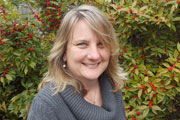What makes a great neighborhood? Our panel investigates
Alison Gillespie |
Monday, December 08, 2014
Despite being held on a cold, rainy night, ElevationDC's panel discussion, "Creating Great Neighborhoods" attracted a full house of more than 100 people on December 2.
The event began with former D.C. mayor Anthony Williams reminding the crowd that it hadn't been all that long since Washington, D.C. was the laughing stock of the country due to financial troubles a few decades ago.
"We really were just struggling for basic respect," he said.
The city has come a long way since then, and done a lot of work to rebuild and reinvent itself. Much of what has been done here to attract new residents and bring in new revenue is being celebrated and even emulated by other cities now.
But more work remains, Williams added, and there are still problems to fix and areas that need attention. "We are about half way up the mountain. We've come a long way, but we have a long way to go."
The discussion continued with a heavy focus on how stores and restaurants have returned to parts of D.C. which once were devoid of both residents and retail. Moderator Jeff Lesk from the sponsoring firm law firm of Nixon Peabody prompted the panel of speakers to talk about what made different aspects of revitalization succeed.
In James McCandless' opinion there really isn't one formula for improving all communities. His locally-based company, Streetsense, has analyzed thriving neighborhoods in cities all over the world to create an online toolkit which can be used to make incremental, measured improvements in commercial districts. But each city, he noted, has to find its own special recipe for success. There often has to be a good blend of national retail chains and locally-owned independent stores. "It is really important for neighborhoods to think: what makes us unique?"
While glad for the new retail, Williams said it is extremely important for the city to first and foremost retain its own sense of place. You always want, he said, a feeling that you are in a neighborhood of Washington, D.C. You don't just want to walk around and find the same things and the same stores you would find in any other city on the globe.
Michael Stevens, President of the Capital Riverfront Business Improvement District, went into great detail about the importance of having new grocery stores as anchors in neighborhoods that were being renewed, and talked about some of the new retail that has helped the Riverfront area blossom into a very vibrant neighborhood.
But Stevens also said that he thinks the city is "over-retailed from a zoning standpoint." There are many needs in our communities that are going unaddressed. Daycares, libraries, afterschool centers, and schools are all things that can happen along a street.
Anthony Williams also repeatedly brought up the issue of schools and the need to support continuing improvements to the city's educational offerings.
Transportation arose as both a point of pride and a point of pain throughout the night. McCandless noted that the city's decision to invest in the Metro several decades ago had paid off wisely; it is now possible to live in D.C. without a vehicle. The recent Green Line expansion, others pointed out, had attracted lots of new growth in some city neighborhoods.
But one member of the audience also expressed frustration over Metro's decision to only run 6-car trains every 11 minutes on evenings and weekends, and others talked about the need to improve the ailing bus system.
A woman also stood up to patiently express disgust over what she described as politicians "paying little more than lip service" to her Ward 8 neighborhood during elections. Her community, she said, remains a food desert, and entering carry out stores there can sometimes feel as if she's taking her life in her hands.
One member of the audience also pointedly asked how we could reframe the city's measurement of success adding that he believed "the welfare of our most vulnerable tends to reveal our deepest values and priorities." Can we find ways to measure the growth of "social capital" as the city thrives financially?
The final question of the evening came from another audience member who had just been elected to his Advisory Neighborhood Commission (ANC) in Ward 8. "A lot of my neighbors are very afraid of being displaced," he said. Great neighborhoods for whom, he asked rhetorically.
While easy answers to these complicated questions remained largely elusive, everyone present seemed to agree: it is important to keep asking.

Alison Gillespie writes about urban environmental issues for a variety of publications nationwide. She is also the author of Hives in the City, a nonfiction book about beekeepers working to keep bees alive in the cities of the Mid-Atlantic US.